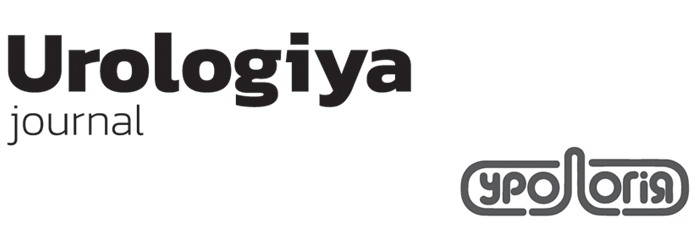S.O. Vozianov, S.M. Shamrayev, A.M. Leonenko
Implementation of the concept of conditions of the national cancer institute of USA for integral assessment of results of the modified endoscopic radical prostatectomy in patients with localized prostate cancer in the State...
The Objective of study is to investigate an integral analysis of the effectiveness of modified endoscopic radical prostatectomy by applying the concept of conditions of the National Cancer Institute of USA (CCNCI USA).
Material and methods. A total of 34 patients who had undergone endoscopic radical prostatectomy with a new method of forming a vesico-urethral anastomosis during 2015-2017. The median of follow-up time was 45.5 months (95% CI 43-51). The results were evaluated using the CCNCI USA after 12, 24 and 36 months from the moment of operation. Due to the presence of severe erectile dysfunction before surgery, four patients were excluded from the analysis. According to the CCNCI USA, the following variants of results of radical prostatectomy are provided: optimal condition (continence, preservation of erectile function and biochemical recurrence free); suboptimal condition (urinary incontinence and/or erectile dysfunction with the absence of biochemical recurrence); biochemical recurrence.
Results. There were 19 (63.3%) patients in optimal condition after 12 months, 9 (30%) patients remained in suboptimal condition, and 2 (6.7%) had biochemical recurrence. Only 3 (10%) patients had a biochemical recurrence after 24 months, and 20 (66.7%) and 7 (23.3%) were in optimal and suboptimal conditions, respectively. There were 22 (73.3%) patients in optimal condition after 36 months after radical prostatectomy, 4 (13.3%) remained in suboptimal condition, and three-year recurrence-free survival was 86.7%.
Conclusions. In sum, 73.3% of patients in the study group had been reached the optimal condition according to the CCNCI USA during the three-year follow up, and the main reason for constanting a suboptimal functional result had been postoperative erectile dysfunction. Modified endoscopic radical prostatectomy demonstrates a comparable indicator of modern foreign sources of three year recurrence-free survival of patients with localized prostate cancer, due to which this technical modification can continue to be widely used in clinical practice.

